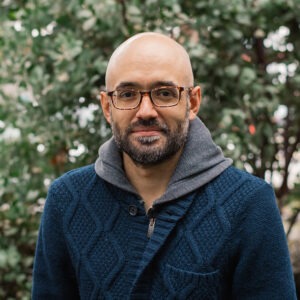
Director of Food Equity
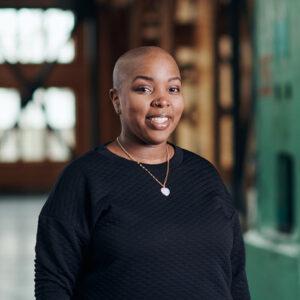
Community Outreach Coordinator

Senior Community Food Systems Manager
Ecotrust Executive Director Ronda Rutledge with Congressman Earl Blumenauer at the Redd. Photo Credit: Jason Hill
In June, Ecotrust’s Food Systems Equity team partnered with the Office of Congressman Earl Blumenauer to host the Sustainable Food Systems Roundtable at the Redd on Salmon Street. Read the recap below.
About 50 folks from across the region gathered to talk about the landscape of food systems here in Oregon, the upcoming Farm Bill, and how folks can work together to positively and effectively create change. The Roundtable began with opening remarks from Ecotrust’s Executive Director, Ronda Rutledge, who then introduced Congressman Blumenauer. Congressman Blumenauer spoke candidly to the group about the challenges of the upcoming Farm Bill: “I’ve spent my career working to focus resources on those who need it most, encouraging investments in people and the planet, protecting our farmland, and ensuring access to healthy food, for too long we’ve been paying the wrong people to grow the wrong food, the wrong way in the wrong places. It’s time to dramatically change how we invest in food systems, and we can use the Farm Bill to do it.”
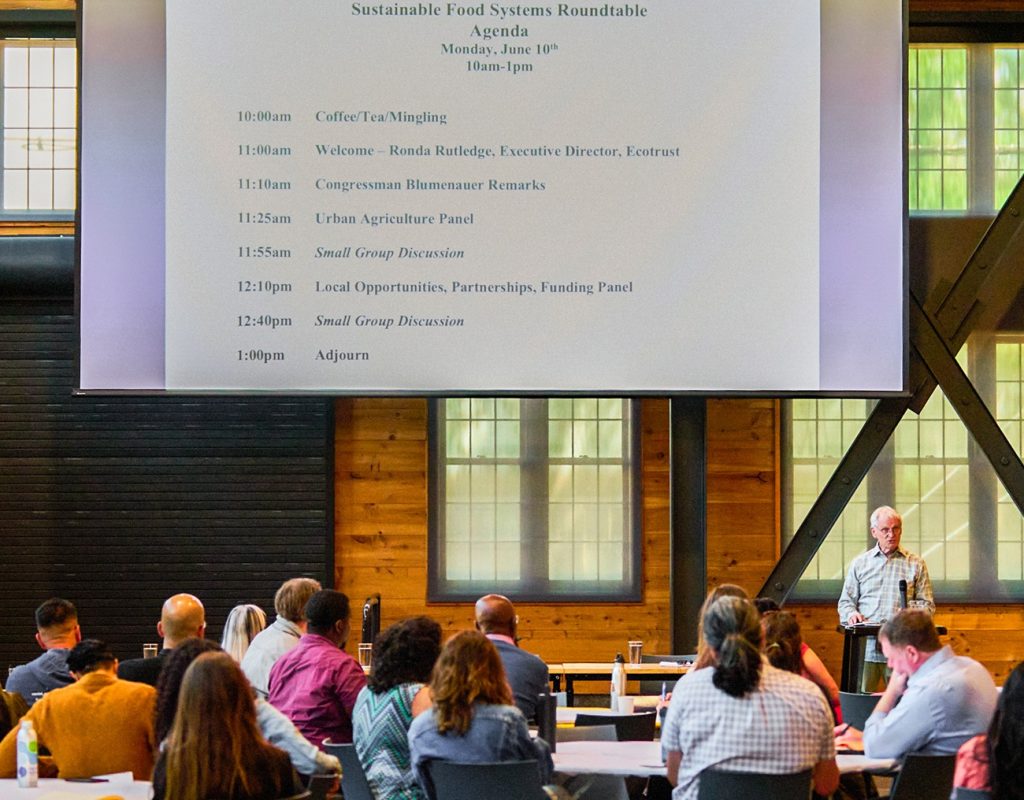
Congressman Earl Blumenauer speaks at the Sustainable Food Systems Roundtable. Photo Credit: Jason Hill
The rest of the morning featured two panels with roundtable discussions: one on Urban Agriculture, and another on Local Opportunities, Partnerships, and Funding.
The Urban Agriculture panel featured Mirabai Collins, Co-Founder and Director of Black Futures Farm; Amanda Welker, Urban County Executive Director for the USDA Farm Service Agency; and Eric Rodriguez, Ecotrust’s Food Equity Director and was moderated by Alisha Howard, Ecotrust’s Community Outreach Coordinator. The panelists spoke to the passion, plight, and progress of the urban ag movement in the Portland Metro Area.
Portland is a leader in urban agriculture, with numerous community gardens, urban farms, supportive policies, and lessons to offer other cities interested in this movement. As discussed by the panelists, the strength and necessity of strategic partnerships was a common theme and a key factor of Portland’s success. The panelists also addressed the unique circumstances—including land access, funding, and zoning laws—that impact urban farmers, as well as the need for specialized support that often goes unmet. Lastly, the three panelists described how their organizations are working to support urban farmers by partnering to bring information resources to their producer communities and close some of those gaps.
In the Local Opportunities, Partnerships, and Funding discussion, the panelists were Rob Cato of Zenger Farm, Jason Skipton of Growing Gardens, Megan Kemple of the Oregon Climate and Agriculture Network, and Huy Ong of Meyer Memorial Trust and was moderated by Angela Hedstrom, Ecotrust Senior Community Food Systems Manager. This group discussed the role that partnerships—between farmers, food entrepreneurs, nonprofits, and government agencies—play in their work and opportunities to strategically leverage public-private partnerships and collaborate across various sectors. The group also discussed the funding landscape for food systems in Oregon. Across the board, panelists noted challenges in securing consistent and long-term funding that aligns with values, timelines, and the evolution of Oregon’s food system movement in recent years.
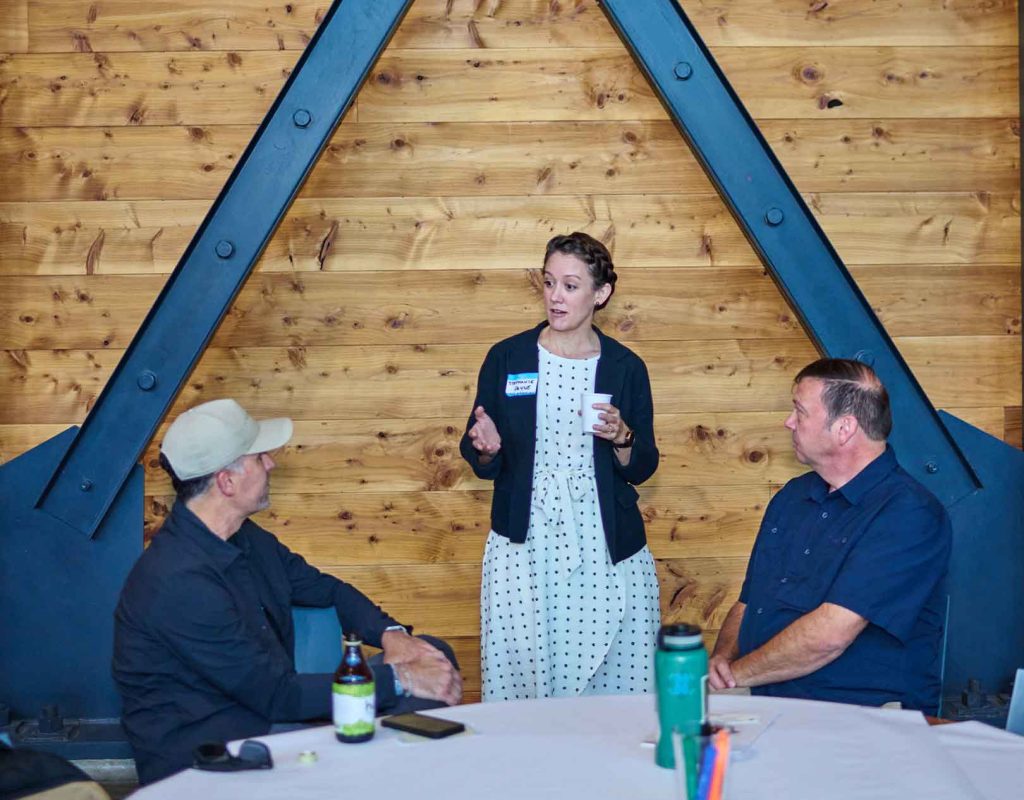
Stephanie Payne of the National Resources Conservation Services (NRCS) chatting with local producers. Photo Credit: Jason Hill
Furthering this work, Ecotrust and Black Food Sovereignty Coalition have a cooperative agreement with the USDA to disburse $150,000 among underserved and socially disadvantaged food producers in the Portland Metro Area. These funds will be distributed as $5,000 microgrants to qualifying farm businesses. The application window for the first round of microgrants concluded in mid-August, and a second round of applications will be accepted in 2025.
“We are fortunate to have an incredible group of food systems leaders in Oregon,” said Congressman Blumenauer. “While I may be leaving Congress at the end of this year, I will stay engaged on this critical issue and hope to have more time to focus on it here in Oregon.”
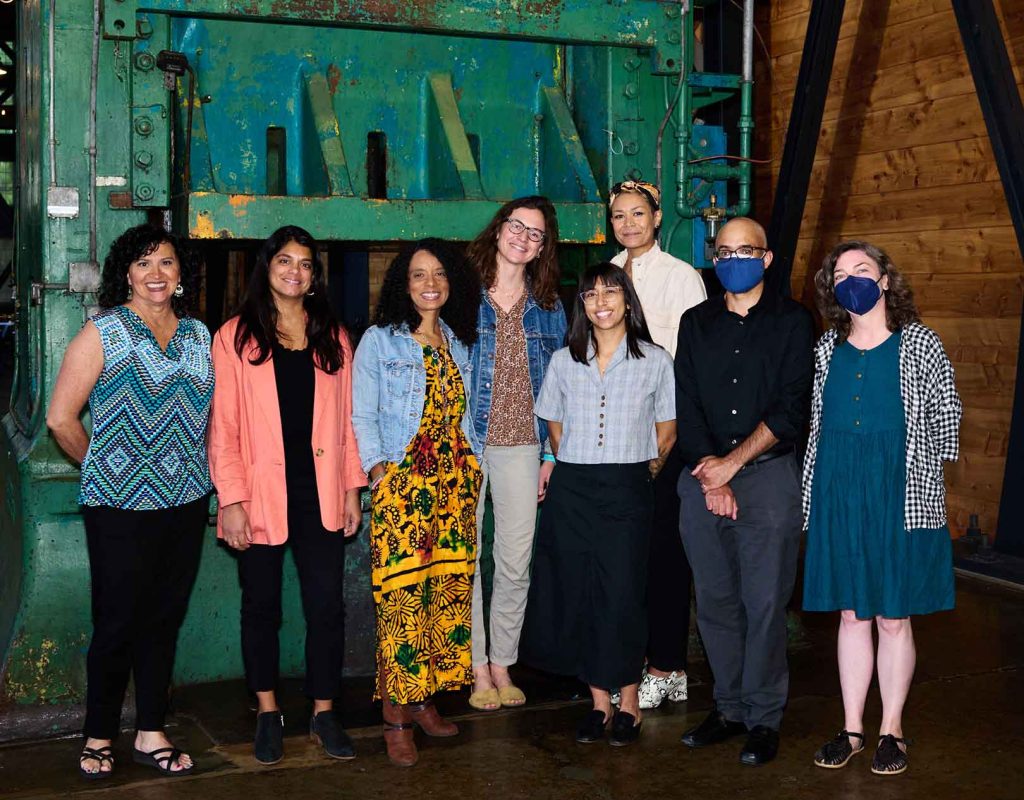
Ecotrust staff at the Sustainable Food Systems Roundtable event. From left to right: Ronda Rutledge, Niyati Desai, Jamese Kwele, Emma Sharer, Sabrina Cerquera, Raphael Guzman, Eric Rodriguez, Angela Hedstrom. Photo Credit: Jason Hill

PROJECT
A $1.5M cooperative agreement is supporting utilization of USDA programs among farmers historically underserved or discriminated against by the agency.

blog